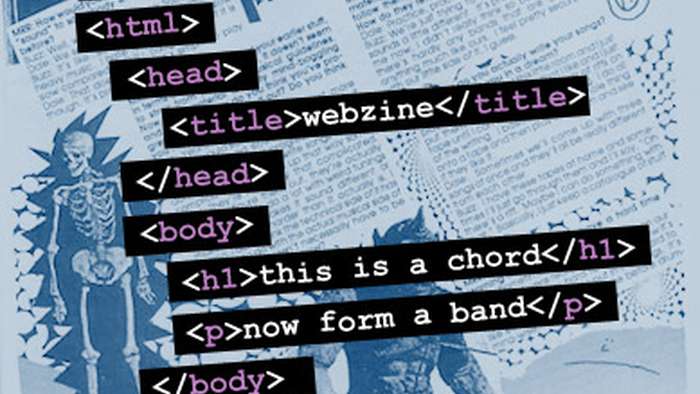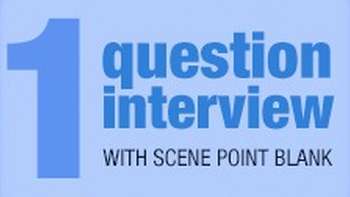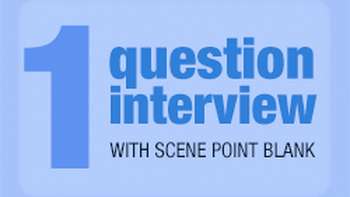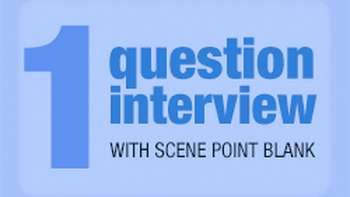 Matt & Loren - Scene Point Blank
Matt & Loren - Scene Point Blank
1. What is your name/publication/title?
Matt: Matt Andrews, developer/designer and occasional writer at Scene Point Blank.
Loren: Loren Green, editor in chief.
2. When did you start up? What was your intent in starting a webzine?
Matt: SPB has been around for almost ten years now (our approximate anniversary is this March). The site was started on the AFI messageboard back in 2003. Of the four original founders, I'm the only member still active with the site - lots has changed. We started out wanting to cover hardcore and punk (lots of early praise for the Blood Brothers, for example) and provide an antidote for Pitchfork's "hipster" reviewing (as we perceived it then). We also wanted to offer unique multi-person reviews, which we still (infrequently) publish.
Loren: I came on board later as a staff writer in late 2007. I moved up to editor at the start of 2011.
3. In the time you've been publishing, what do you feel has been the biggest change in the music scene/industry? How has this impacted your reporting of it?
Matt: For me, it has to be the sheer amount of music available now. Obviously the internet was a big factor even in 2003 on how we consumed music, but this wasn't too long after Napster et al and listening to music online was still a fairly novel concept: nothing like Spotify existed, meaning that new music was perhaps more valuable (at least, to me) since you weren't constantly inundated with it. Today I find it quite hard to keep up with new music, perhaps because there's so much out there.
Loren: I think Matt's answer pretty much nails it. The biggest change I've seen the past two years is the rise in social media, which cuts out a lot of middlemen in the industry, be it on a PR level or in terms of releasing your music.
4. Do you think the decline in sales of print-based music magazines is partly due to the rise of webzines? Do you think webzines themselves are now dropping off in favour of something newer?
Matt: I don't necessarily think webzines are causing the decline in print music publications, but I'd be prepared to bet that sites like Pitchfork are equally (or perhaps more) influential to long-running music magazines like NME or Rolling Stone etc. Print in general is suffering at the hands of the internet, so the real value now is in publications which can sift through the tons of new releases and tell you what's good. I do worry, though, that webzines themselves are beginning to decline in favour of socially-powered music services: why care what some stranger thinks of the new Mogwai album when you can just see what your friends are recommending on Spotify, ThisIsMyJam, and tons of other sites?
Loren: I'd say Matt hit this one too. In a parallel with what he said about the current access to new music (in question #3), information about new music is similarly abundant.
5. In terms of your readers, do they show any preference for any specific types of content? Do they favour multimedia features (mp3s, podcasts, videos, etc) or more traditional content types?
Matt: We've toyed with the idea of more multimedia content (I still remember convincing Ted Leo to record a jingle for the "SPB Podcast" which never happened, back in 2008 or something) but it never really got off the ground. In general our features perform pretty well, since they're fairly exclusive, and our reviews are good as archive content as well as new release coverage, too. News is perhaps less strong since other sites do it better (ones with the word "news" in the domain name, perhaps) and again, social networks like Twitter mean that fans these days follow the bands and labels they like directly and get the news at the source.
6. How have online commenting systems developed since you've been publishing? Have you taken any steps to “manage” the community of fans posting on your site?
Matt: We've never had a massively vocal userbase, although we've recently switched to Disqus commenting which we're hoping will increase this. We're lucky; we don't tend to get comment threads full of trolls and abusive flamewars (just spam content instead...). We did have a messageboard where we wanted conversations to take place but this died off slowly till we made the call to make it staff-only (we use it for organising content).
7. What do you think the future is for web publishing? Do you have any plans to cater for users on different platforms (mobile devices, social networks, apps like Spotify)? Would you ever consider experimenting with print?
Matt: I'm quite keen to make sure the site is mobile-friendly -- traffic numbers for portable devices rise every month. Apps probably don't work for content sites like ours (a good website is usually compelling enough). In my day job I work for a major news organisation and we're constantly wondering about the future of web publishing there too. I honestly don't know what's going to happen but my sense is that our value is curating the stuff that's out there and recommending things for a relatively niche audience. If you can listen to any record you like whenever you like, that's cool -- but it's an enormous amount of choice. Good publications can help sort that stuff and point you to the real goldmines out there.
Loren: Niche is definitely the way to put it. While some of our reviews that are obscure today may not generate traffic, it's an important archive about independent music. As for print, we have a couple of zinesters on staff, and our fingers are crossed that we can create some kind of physical release at least once to complement the website.
Let's fish for getting that online commenting going right now. Readers, would you like to see a one-time Scene Point Blank zine available?








